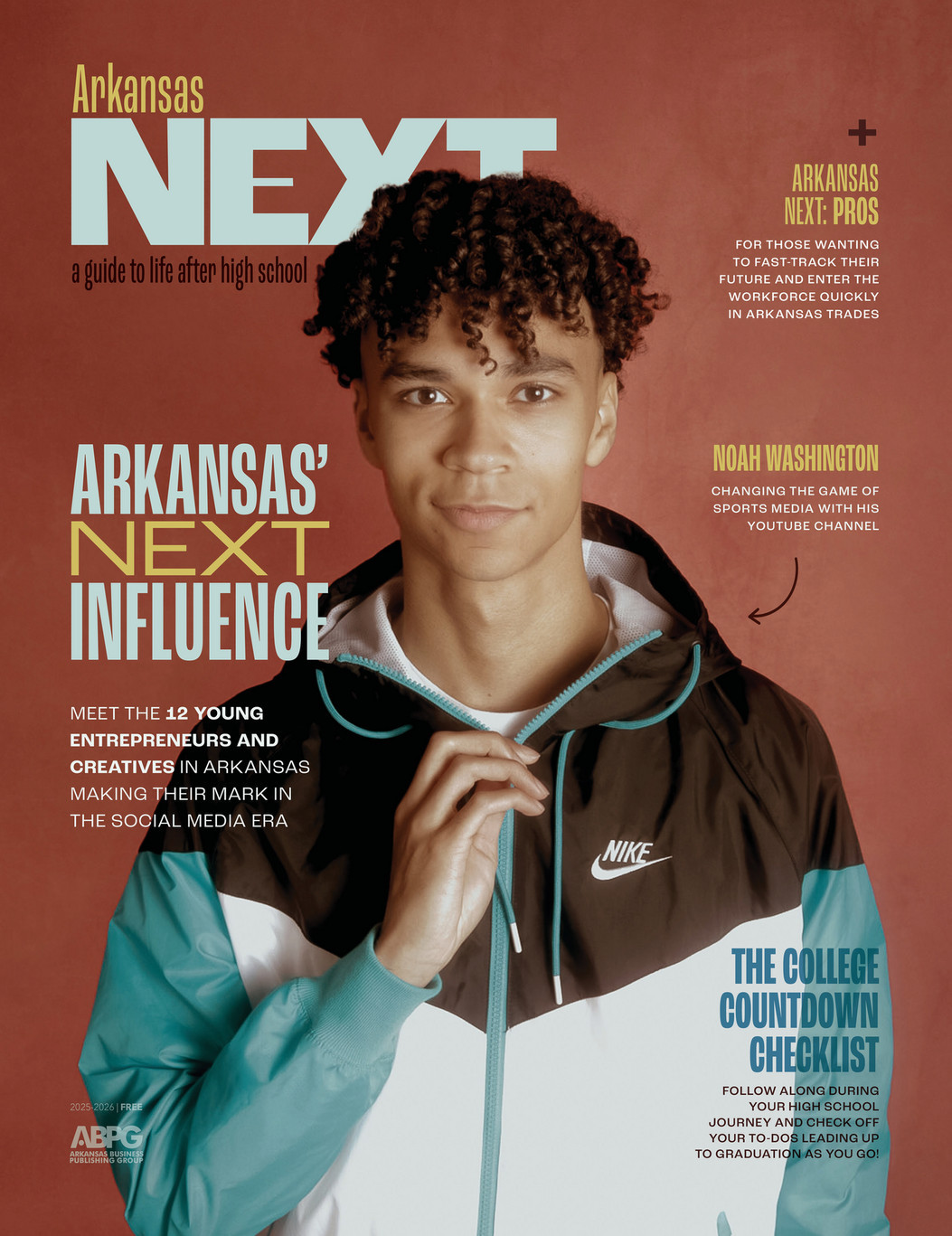A Beginner's Guide to Buying Your First Car
By Julia Shands on Thursday, March 20, 2025

You've finally saved up enough money to purchase your first car, but now what? You aren’t sure what car would best suit your needs, how to talk to a sales associate, or where to even begin your search. Here’s a helpful guide to lead you through the process and leave the lot with the car of your dreams.
STEP 1: KNOW YOUR NEEDS
Once you’ve made your way to a dealership, it’s easy to be influenced by the rows and rows of shiny new vehicles, but what you want isn’t always what you need. Space, gas mileage and safety are all big factors that play into the decision-making process. Are you the driver in the friend group? If so, you might want to rethink the slug bug that you’ve been eying and consider an SUV.
Elizabeth Shults, director of digital operations and marketing at McLarty Daniel Automotive, advises first-time buyers to understand their vehicle needs before even stepping foot on a lot. “A lot of first-time buyers obsess over how something looks, rather than thinking about how they are going to use their vehicle,” said Shults. “Finding something that fits all elements of your budget, not just the car payment itself, is critical. If you have a long commute to a job or college, and a skinny gas budget, you're much better off buying something economical until your financial situation improves.”
STEP 2: ASK QUESTIONS
Your sales consultant is your friend, not your enemy. Don’t shy away from asking difficult questions because their job is to help you, and the more you know, the better. Shults provides a few questions to ask when reaching a decision:
• How much seating do I need for my everyday life?
• Do I regularly drive over terrain that I might get stuck in?
• How many miles am I expecting to drive every year?
• Do I need to tow anything?
• What is my budget like for the other parts of the automotive cost of ownership: maintenance and repair, insurance and fuel?
• What are the warranty options and how expensive are they?
• Are there any incentives or rebates?
• Does my purchase come with roadside assistance or other dealer benefits?
WHAT TO CONSIDER:
1. What is your budget for monthly payments and for your down payment?

2. Reliability (cars that won’t break down!)
3. Gas mileage (How many miles has the car already been driven, if any? High mileage often means significant wear and tear.)
4. Fuel efficiency (Less efficient means more money you'll have to spend on gas monthly.)
5. Warranties (cars with these can save you money on maintenance and repairs)
6. Cost to maintain and repair (luxury cars cost more for basic services like oil changes and repairs)
7. Resale value (when you go to upgrade, will you be able to sell it for a fair amount?)
8. Vehicle history (used cars sometimes have unseen damage, making them less reliable)
STEP 3: NAVIGATE THE NEGOTIATION
After figuring out what car fits your lifestyle, it’s time to talk business. Negotiate with the seller to agree on a payment that’s fair for the value of the car. Most of the time, there’s wiggle room to the asking price and the amount which the seller is willing to make a deal, so don’t be afraid to bargain.
Negotiating seems intimidating, but Shults says, “All negotiation boils down to is a conversation. Depending on the market conditions, a dealer may be able to come down from the sale price or give you more for your trade if you are trading in a vehicle. The worst that can happen is that the answer is a ‘no!’”
STEP 4: PREPARE FOR THE PAYMENT
If this is your first “adult” purchase, the payment portion of the car buying process can be a tad confusing, but many dealerships, like McLarty, are able to make this transition as painless as possible. Before making the purchase, it’s important to note that a credit score and income, and sometimes a co-signer, are required to seal the deal, but you can rest easy knowing that you don’t have to go at it alone.
Shults claims, “Most automotive dealerships work with several financial institutions and will help you get the most ideal financing for whatever situation you may have.” You do not have to use the financing options suggested by the dealership if there is another you prefer. Look around. Some credit unions specifically serve current and former military and their families, offering much lower rates.
LEASING VS. BUYING
| PROS | |
| LEASING | BUYING |
| You drive a new or almost-new car during its best years and while it's under warranty. You'll usually end up in a car a little nicer than you might have bought due to affordable monthly payment options. Oil changes and scheduled maintenance are usually covered. You won't have to worry about selling it later, the dealer just takes it back. You do not need as much money up front. | You own the vehicle and get to keep it as long as you want. You can also trade it in or sell it any time you want it. You can drive as many miles as you want. You can customize your ride however you see fit. |
| CONS | |
| LEASING | BUYING |
| You sign a contract to drive no more than a certain number of miles; there are penalty fees if you go over. You have to take really, really, really good care of it. The dealer expects the vehicle to return as close to how it left as possible; there are excessive wear and tear penalty fees too. If you lease back-to-back vehicles, you'll always have a monthly payment, as opposed to eventually paying off a car loan and owning it outright. If you change your mind before your contract is up, there are early termination penalty fees. You cannot modify or customize the vehicle. | You will need a down payment up front. Monthly payments for a car loan are generally more than a lease. You have to deal with selling it or negotiating trade-in value later, and if done too soon. You'll have to be mindful of not getting upside down in your car loan. |
STEP 5: GET INSURANCE INFORMED
Arkansas state law requires all drivers must have liability coverage. This coverage pays out any damages for when the driver is at fault, so don’t get behind the wheel if you aren’t insured. You also won’t be able to purchase a car if you don’t have proof of insurance, so it’s necessary to make these arrangements beforehand.
There are many insurance providers out there, so do your research on the costs and benefits for you. Shults says she’s always found the best insurance providers by asking the people around her who they use and why they like them.
STEP 6: TAKE PRIDE IN YOUR PURCHASE
You’ve finally made it past the most difficult part. Buying your first car is a milestone and with it comes a sense of accomplishment. When leaving the lot, be proud of your purchase, and don’t forget to take a victory lap—you’ve earned it!

BEST CARS FOR TEENS
Trusted sources reveal their fave vehicles for first-time car buyers:
Cars
(small and mid-size)
• Mazda 3
• Subaru Legacy
• Honda Insight
• Nissan Altima
• Kia K5
• Toyota Corolla
• Ford Fiesta
SUVs
(small and mid-size)
• Mazda CX-3
• Subaru Outback
• Mazda CX-9
• Nissan Murano
• Honda CR-V Hybrid
Sources: Consumer Reports, Car & Driver, U.S. News & World Report
YOUR NEXT BIG PURCHASE
A car is likely to be your first big purchase, but it won’t be your last, nor your biggest. One day soon, you’ll be considering student loans or even owning a home. All of these things require the same financial skills (and good credit) you used to buy your first car.
$33,525
Average student loan debt in Arkansas
Source: educationdata.org, 2022
45
Median age of home buyers in the U.S.
Source: National Association of Realtors, 2022
$224,000
Median home sales price in Arkansas in 2021
Source: Clever Real Estate, 2022
Buying a home is more than just finding a place to live. It’s an investment. In most cases, your home will appreciate (become more and more valuable) each year you own it. Equity is the amount of money you have paid toward the purchase of the home (the down payment and mortgage payments), plus any appreciation, but minus the amount you still owe the bank you borrowed from. Find out more about building and maintaining credit here.














